 Here at Selfishgenie we try not to mention politics or religion in our blogs. It’s not that we don’t have opinions on those subjects – we’re human (honest, we are) so of course we have opinions. No, it’s that if we express our opinions we are pretty sure that we will alienate a considerable number of our readers. It doesn’t matter which side of the discussion we are on, we are going to alienate the people who are on the other side. And that is bad for business. If we alienate people, they may decide that they want to punish us for our views by not buying the books we publish. 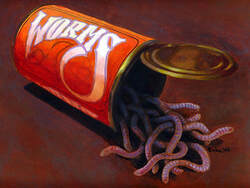 Are you opening a can of worms? Are you opening a can of worms? If they do that, however, they aren’t just punishing us, they punish our authors and that’s wrong, because those others don’t necessarily share our views. In fact, I know of a couple of our authors that have opposing views, but we manage to get along amicably anyway. So, the people that are trying to punish us actually end up punishing people who agree with them. It’s a strange world, isn’t it? But, of course, that brings into question how Indie authors handle politics and religion, and it can be very bad for sales. I include in this views on climate change, race, homosexuality, transexuals, conspiracy theories, vaxxing, and a wide range of other issues which have political or religious implications. 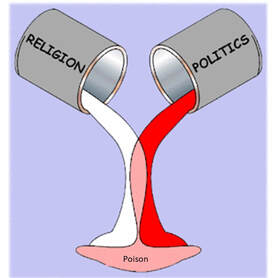 A poisonous mixture! A poisonous mixture! Every time we post something on social media, it tells the world a little bit about us. And some of the things we say have the power to alienate people. It doesn’t matter that they are our sincerely held beliefs. It doesn’t even matter that what we say may be true. All that matters really is that it has the power to affect book sales. I know there are authors who struggle with this. They have strong beliefs and they want to express them either to support or oppose whatever it is their beliefs are about.  But some of the people who take an opposing view read those Tweets and think ‘I don’t agree with them, therefore I won’t enjoy their books if I bought them, so I won’t buy them’. It may be an absurd view, but that doesn’t stop people taking it. I once overheard someone say that if they had known that a certain author held certain political views, they would never have bought their books. The person they were talking to asked them if they had actually enjoyed the books, to which the first person replied that they had. You see how ironic that is? Even though they had enjoyed the books, they wouldn’t have bought them if they’d known the political views of the author. Absurdity in the extreme. But I’m pretty sure that person isn’t an isolated example.  Then there are the political “discussions” people get embroiled in. Some of them get quite heated; insults get thrown around and generally the people involved never come out of it looking good, no matter how valid their arguments. Again, if one of the participants is an author, it won’t help their brand image. No one knows how many people are viewing those social media arguments and taking note of what is being said, so the people involved never know how much harm they are doing to their “brand”. And, of course, it is there forever. Even if it is deleted by one of the parties, it can still be found on a server somewhere.  Some people would rather burn books than read them - even yours. Some people would rather burn books than read them - even yours. The other side of this coin is the expression of political or religious views in books. There are times when that is appropriate for those to be featured in novels, of course, but there are times when it isn’t. It is possible for some books to use sensitive subjects and become bestsellers, such as “To Kill A Mockingbird” and “Last Exit To Brooklyn”. However, it isn’t possible to know in advance how books featuring these topics will be received and for every Booker/Pulitzer prize winning bestseller there are a thousand books that sink like lead balloons. 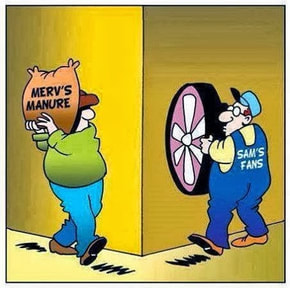 If you are writing books aimed at a specific audience who are likely to share your views, then writing about religion or politics (or the rest) is perfectly OK. You aren’t going to alienate people who agree with you and it doesn’t matter if everyone else is alienated because you don’t expect them to buy your books. And you will soon find out how many people support your views from the number of sales you make. But if an author is trying to find a broad audience who have a wide range of views on politics and religion, including sensitive topics in novels has the power to make the reader throw their book at the wall and you can be sure they’ll never buy another one by the same author. So, there are two different bear traps to consider when you are writing your book.  If you are a big name author you can probably ride out the storm created by expressing your views in public. I could list a dozen authors who have created social media storms on a range of issues and their careers haven’t suffered. However, I know of one big name who can't now get a job cleaning sewers because no one will employ him anymore. He’s an actor. He made his political views public and it has ruined his acting career. Can you, as an Indie author, take that risk? Your career could be over before you’ve even sold your first book. Not only that, but everything you say on social media remains there forever, somewhere, lurking and waiting to be exposed by someone with an axe to grind. When you are better known, as we all hope to be, it can also come back to haunt you. Even if you have modified your views over the years and you no longer believe as you did back in the day, no one will believe you. After all, we all know that leopards can’t change their spots, don’t we? 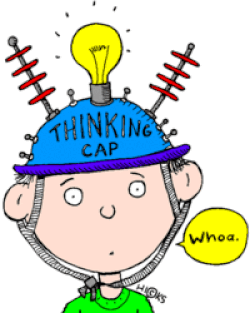 Of course, people can (and do) change, but the people who are out to embarrass you will assert that you haven’t changed, and other people will listen to them because it will be hard for you to prove that you have changed. The only way you will be able to restore your reputation will be to hire a very expensive PR agency to give your public image a make-over and nobody wants to have to spend that sort of money. As I said, it doesn’t matter which side of the argument you are on, the people on the other side of it will either stop buying your books or, worse, will try to take you down for having the temerity to express your opinions. Of course, there are times when you can introduce politics into novels with broad appeal. For example, in novels set during the 1930s and 40s, making your protagonist an anti-fascist is fine. Similarly, for books set during the Cold War it would be OK for them to be anti-communist. But those are areas where there is broad agreement that the relevant regimes were evil. They are the exception, not the rule. And if there are readers who think those regimes weren’t evil, you probably aren’t too bothered about alienating them. 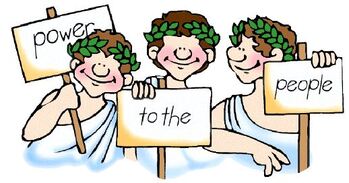 In political thrillers it may seem obvious to align your characters to a political party, but that way lies madness. No matter on which side you place them, someone is going to take offence, especially if it is hinted that everyone who supports a similar political line is tarred with the same brush. Make a politician corrupt or venal and suggest that they belong to party X and not to party Y, and you are bound to upset all the supporters of party X. That could be up to 50% of the reading public in some countries. Making religious figures corrupt or evil is just as bad. 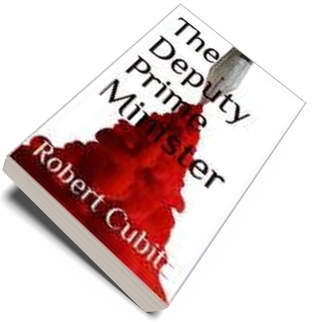 One of our authors wrote a political thriller and left the actual politics ambiguous. After all, personal greed and ambition are not limited to one party or another, because it is the individual that is greedy or ambitious. A study of scandals relating to the conduct of individual politicians will reveal that no party ever comes out of things squeaky clean. (We’re not going to name names, for the reason with which we started this blog). So, when it comes to politics, religion and other topics where people are divided, if you decide to dabble, either on social media or in your books, take care because you are entering shark infested waters. And if you feel you really must nail your colours to the mast on social media, write under a pen name so no one knows who you really are, or use a fake name on social media. If you have enjoyed this blog, or found it informative, then make sure you don’t miss future editions. Just click on the button below to sign up for our newsletter. We’ll even send you a free ebook for doing so.
0 Comments
Leave a Reply. |
AuthorThis blog is compiled and curated by the Selfishgenie publishing team. Archives
June 2025
|
 RSS Feed
RSS Feed